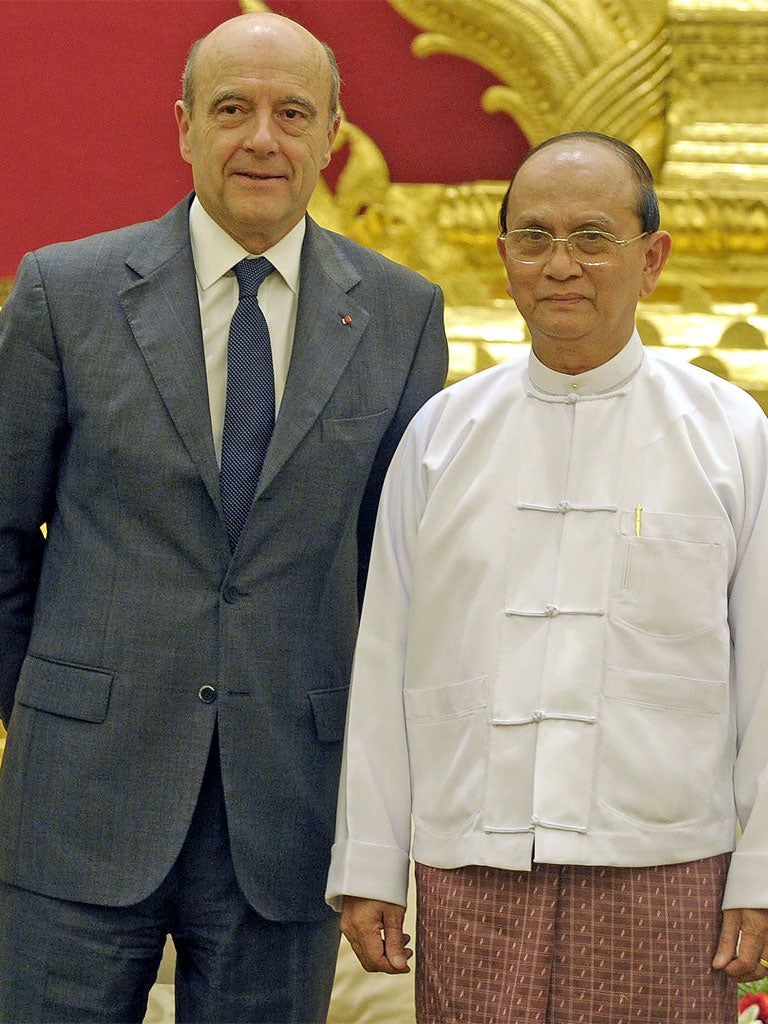EU rewards Burma reforms by lifting some sanctions

The European Union has rewarded Burma for a "remarkable" flurry of moves towards political reform by easing some sanctions against the regime.
In a move that could lead to more comprehensive sanctions being dropped, the EU's foreign ministers said they were lifting a visa ban on the President, Vice-Presidents, cabinet ministers and parliamentary speakers.
"The council welcomes the remarkable programme of political reform undertaken by the government and parliament in Burma, together with its commitment to economic and social development," the ministers said in a statement. "These changes are opening up important new prospects for developing the relationship between the EU and Burma."
In recent months, the Burmese leadership has implemented changes that surprised even the most sceptical observers. High-profile political prisoners were freed and the pro-democracy leader Aung San Suu Kyi's party was registered to take part in by-elections. While a number of prisoners remain behind bars, most campaigners have been encouraged by the developments.
Burmese authorities, led by President Thein Sein, have called on the West to respond to these initiatives and have been rewarded with a series of visits from senior diplomats.
In an interview with The Washington Post, Mr Thein Sein said he hoped for a complete rapprochement, adding: "The US and the EU have had economic sanctions on our country. It has been [for] nearly 20 years now. I would like to see them ease ... and eventually get rid of the sanctions."
The softening towards Burma is a dramatic reversal for the EU, which has put sanctions on 419 officials and more than 900 entities in protest at the regime's record of repression. As well as the visa ban, the EU has imposed an arms embargo, a ban on the sale of goods linked to internal repression, and suspended certain development aid programmes. The sanctions are renewed every April.
This year many nations will be lobbying for the restrictions to be eased to enable European companies to compete with the Chinese, South Korean, Indian and Thai businesses which dominate trade with Burma. By then, Burma will have held a series of by-elections, which Ms Suu Kyi will contest. If the polls are deemed to be fair and Ms Suu Kyi and others candidates from her National League for Democracy (NLD) secure seats, there will be even greater pressure on EU member countries to act.
But some observers believe Burma has not yet done enough to warrant sanctions being dropped. Mark Farmaner, of the Burma Campaign UK, said: "There have been changes but so far no reforms. Political prisoners have been released but the laws are still there for which they were jailed in the first place."
Ms Suu Kyi believes the embargoes should remain for now. In a separate interview with the Washington Post, she said: "The US has laid out very clearly what the conditions are for the removal of sanctions. If [the Burmese] government wants sanctions to be removed, they will have to try and meet those conditions."
Join our commenting forum
Join thought-provoking conversations, follow other Independent readers and see their replies
Comments
Bookmark popover
Removed from bookmarks